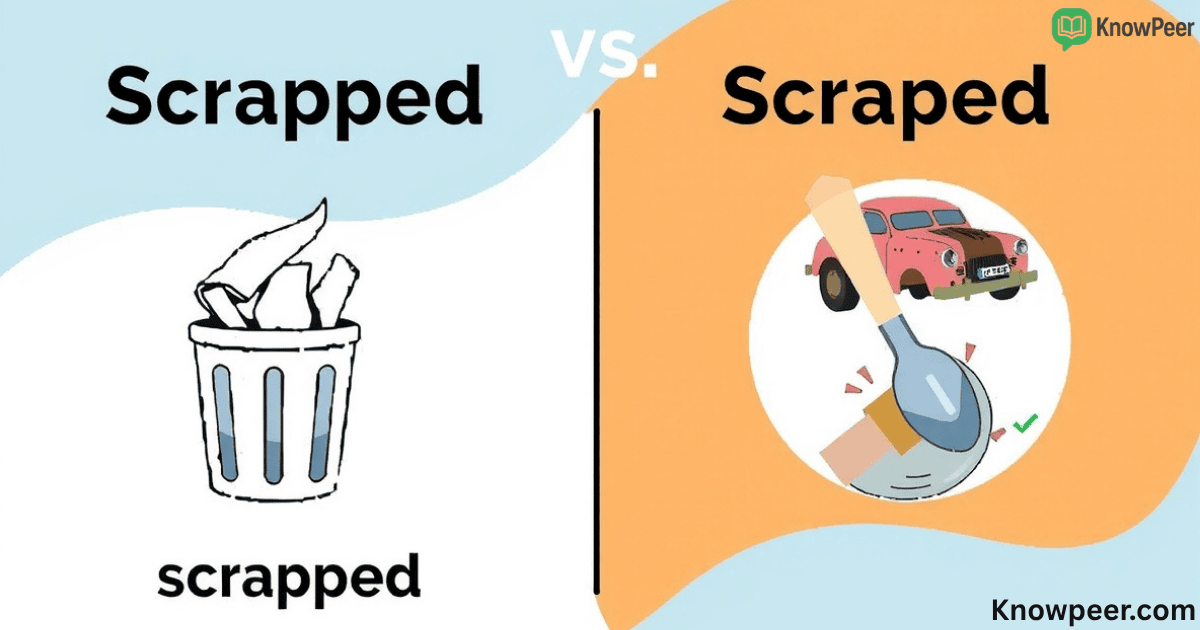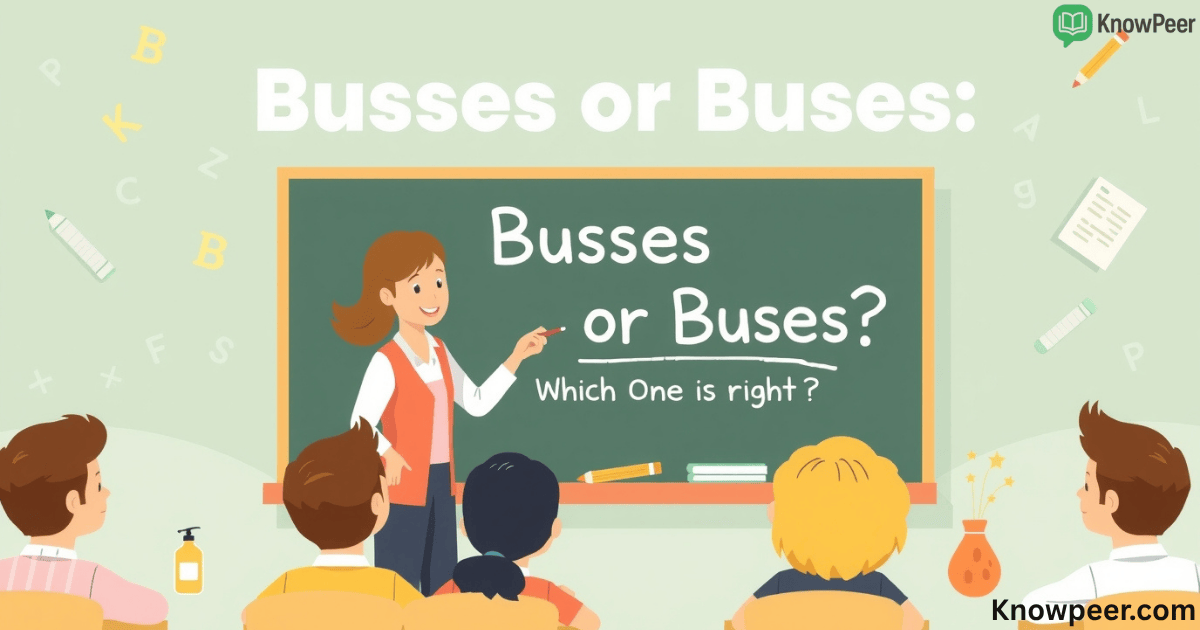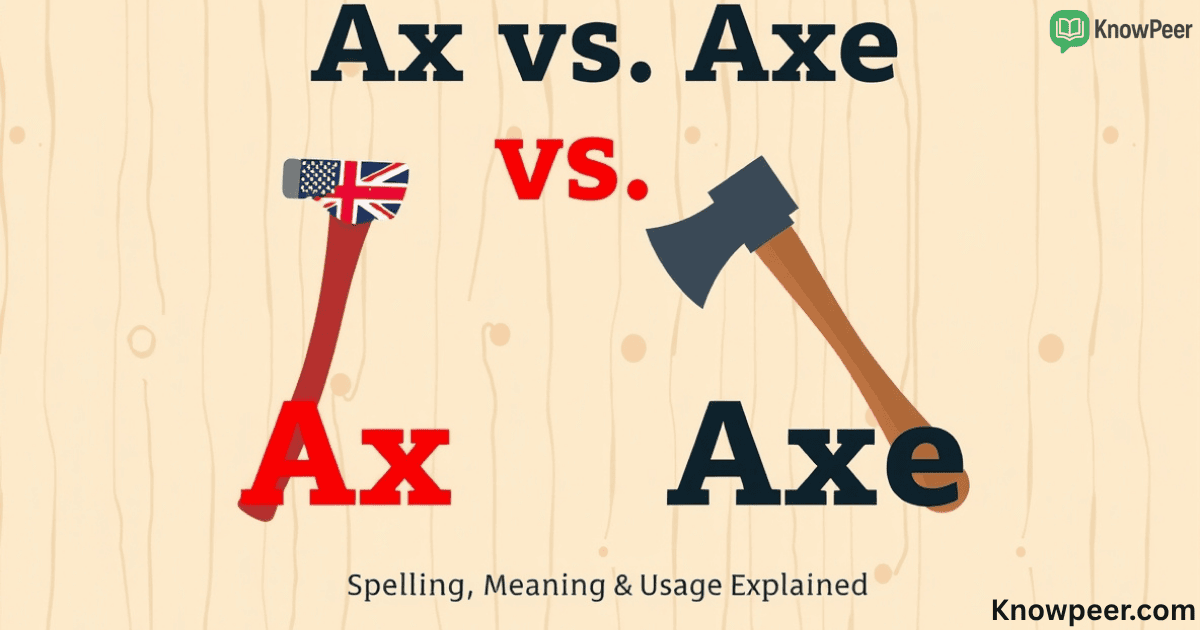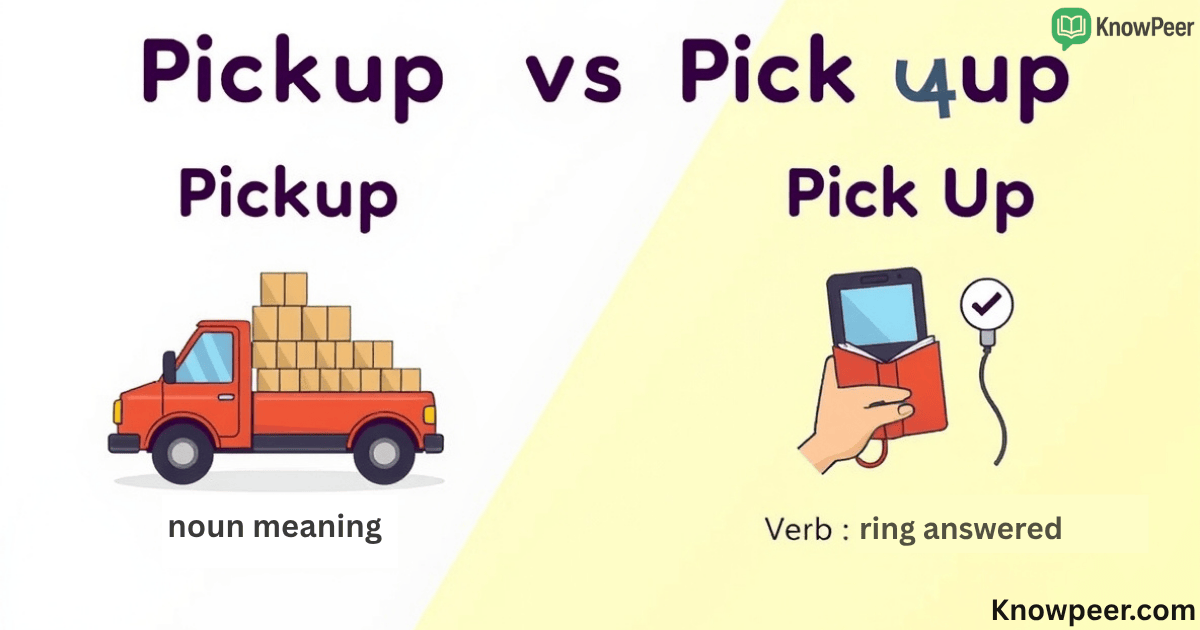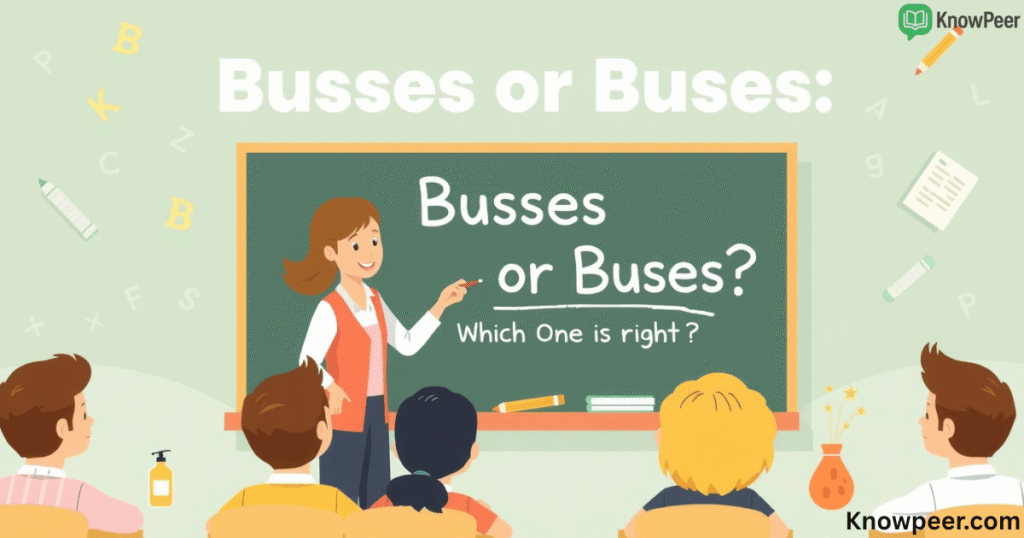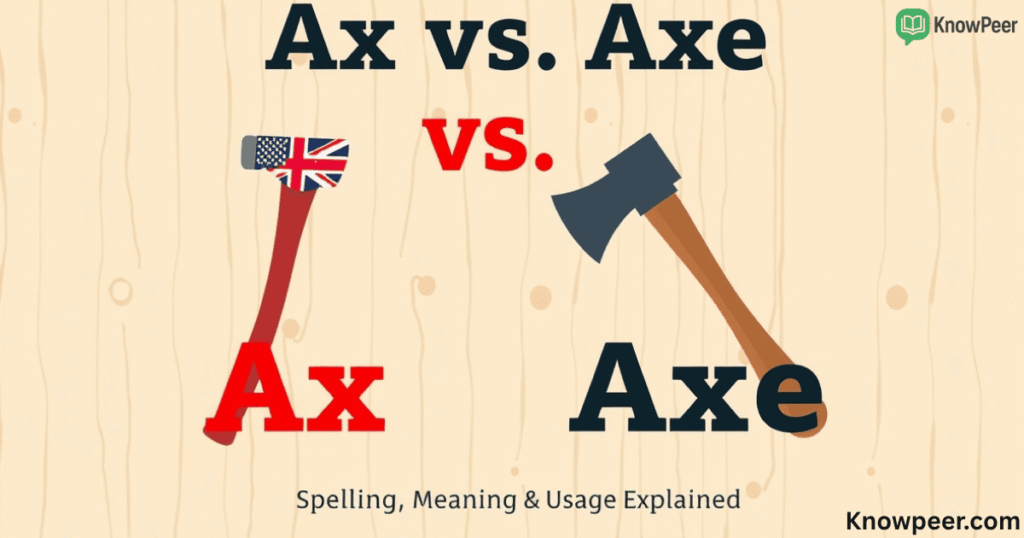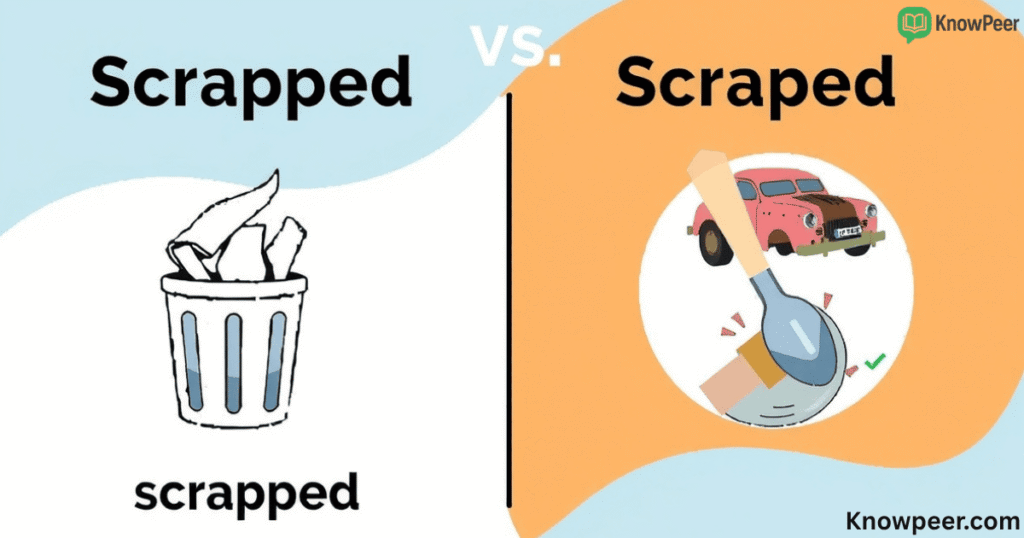Language can often be tricky because certain words sound so similar that even careful writers and speakers confuse them. A common example is scrapped vs scraped, two words that appear almost identical at first glance. The difference between scrapped and scraped lies in both meaning and usage, but because the words are so close in spelling and sound, they often create uncertainty. If you have ever wondered whether you should write a plan or scrape a plan, you are not alone. This guide will walk you through the scrapped meaning, the scraped meaning, their origins, their examples in sentences, and even their synonyms. By the end, you will have no doubt about when to use each one.
The confusion between the two does not just come from spelling. Both words are part of everyday speech, and both can appear in serious contexts such as business, academics, or news. Misusing them can make writing look sloppy or unprofessional, which is why a clear explanation is important. The goal here is to give you a complete resource so that you will never mix them up again.
Why People Confuse “Scrapped” and “Scraped”
The scrapped vs scraped confusion happens because the two words look and sound almost the same. Only one letter separates them, yet that single difference creates a huge shift in meaning. When reading quickly, people often misinterpret one word for the other, and when writing, it is common to type the wrong one without noticing. Both belong to everyday English, which means the mistake happens in schools, workplaces, and even in professional news articles.
The mix-up is also caused by the way these words appear in figurative language. The scrapped meaning is about throwing away or abandoning a project, while the scraped meaning is often about damage, survival, or narrow success. When someone says a team “scrapped their plan,” they mean it was cancelled. But when someone says a player “scraped through the match,” they mean he barely made it. Because both involve challenge or failure in different forms, people often swap them by mistake.
Another source of confusion is grammar. The base forms scrap and scrape are already close in spelling, so when they change into scrapped and scraped, the difference becomes harder to spot. This is why the difference between scrapped and scraped is one of the most common word pair mistakes in English writing today.
What Does “Scrapped” Mean?
The scrapped meaning is connected to removing, abandoning, or discarding something. Think of it like throwing an idea into the trash. When something is scrapped, it is not used anymore. This is why you hear phrases like “the plan was scrapped” or “they scrapped the project.”
Looking at the scrapped definition, we see that it works both formally and informally. In business, it may refer to an entire campaign being abandoned. In casual speech, it can simply mean that someone decided not to go through with an event or plan. A good way to remember this is that scrapped means stopped or abandoned completely.
What Does “Scraped” Mean?
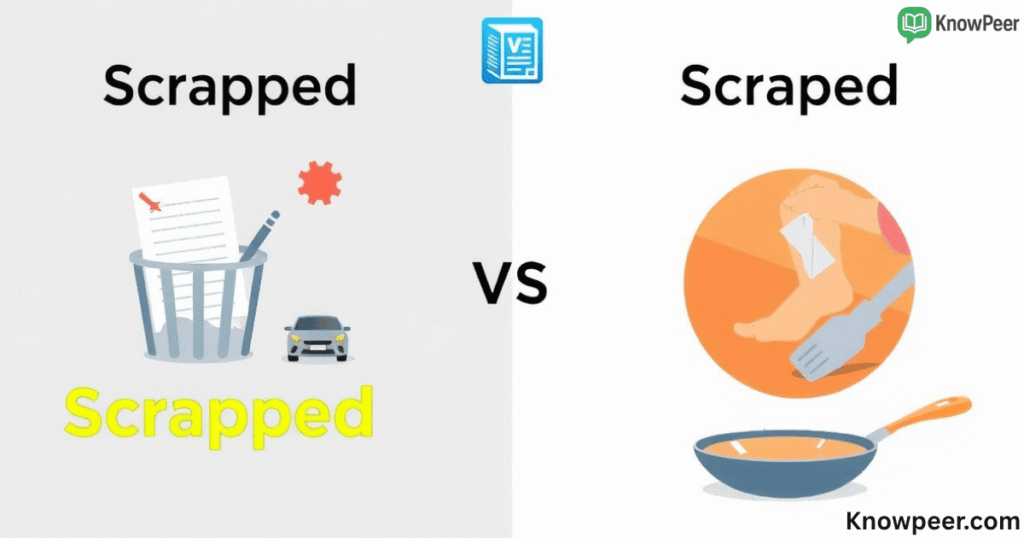
The scraped meaning is connected to scratching, rubbing, or dragging something across a rough surface, often leaving a mark or causing small damage. When you hear that someone has “scraped their knee,” it means their skin rubbed against the ground or another hard surface, causing an injury. In the physical sense, the scraped definition always involves friction that removes, damages, or wears away a layer of something. Paint can be scraped off a wall, ice can be scraped off a car window, and food scraps can be scraped off a plate.
But the word is not limited to physical surfaces. It has expanded into figurative language as well. People often say they “scraped by” when they survive with very little money or resources. A student may say they “scraped through” an exam if they barely managed to pass. In both cases, the meaning highlights difficulty, effort, and narrow success. These figurative uses are extremely common in everyday English, and they show how the word connects to both effort and survival.
Unlike scrapped, which always suggests abandonment, scraped describes damage, effort, or gathering. This makes the difference between scrapped and scraped very clear: one throws away, the other struggles through. Understanding this distinction ensures you avoid a common writing mistake.
Scrapped vs Scraped: Key Differences
At first sight, the scrapped vs scraped difference with examples can seem small, but in practice the two words serve very different purposes. Scrapped always refers to abandonment. Scraped, however, refers to damage, collection, or surviving narrowly.
| Word | Meaning | Example Sentence |
| Scrapped | Abandoned, discarded, stopped | The company scrapped the old website project. |
| Scraped | Damaged, gathered, narrowly survived | She scraped her knee while running. |
This table makes it clear that while the two words look alike, their meanings cannot be swapped. Using one in place of the other would create a scrapped vs scraped mistake that readers will notice.
Examples in Real Sentences
To really understand scrapped vs scraped usage, examples are essential.
When we look at scrapped vs scraped in a sentence, it becomes clear how context drives the choice.
For scrapped:
The government scrapped the tax proposal after strong opposition.
He scrapped the idea of buying a new car this year.
The film project was scrapped due to budget issues.
For scraped:
She scraped her car door against the wall.
He just scraped through the final exam with a passing grade.
They scraped by on a very small income last winter.
The difference is visible. Scrapped examples are about stopping or abandoning, while scraped examples are about damage or effort.
Synonyms and Alternatives
Both words have rich sets of synonyms, and understanding them can also help clarify meaning.
For scrapped synonym choices, you might use: abandoned, cancelled, discarded, dropped, eliminated. Each one shows the sense of something being ended or stopped. In some contexts, you might compare scrapped vs cancelled or scrapped vs abandoned, but they usually share the sense of something being thrown away.
For scraped synonym choices, you can use: scratched, grazed, brushed, dragged, scuffed. In figurative contexts, you might say struggled, barely passed, or narrowly survived. This shows how the word moves from the physical world of surfaces into the figurative world of effort and survival.
Origins and Historical Development
Looking at the scrapped vs scraped origin reveals how the two words took different paths even though they look alike today.
The word scrapped comes from “scrap,” meaning leftover pieces or fragments. Over time, “to scrap” meant to throw something away or dismantle it. By the 19th century, it had also taken on the figurative sense of cancelling plans or abandoning ideas.
The word scraped comes from Old Norse roots related to dragging or scratching. Historically, it described physical rubbing or damage. Later, people extended its meaning to survival and effort, as in “scraping together money” or “scraping through an exam.” This shows how the word moved beyond surfaces and became part of figurative speech.
Practical Usage Guide
For those who want a quick way to remember the scrapped vs scraped grammar, think of this rule: scrapped means abandoned, scraped means damaged or barely succeeded.
If you want to avoid the scrapped vs scraped commonly confused words problem, try linking them with simple memory tricks. Imagine crumpling up a plan and throwing it in the trash — that’s scrapped. Imagine scratching your knee on the ground — that’s scraped.
Many writers mix them up in emails, reports, or online posts, but the scrapped vs scraped writing distinction can help you sound precise and professional.
Scrap vs Scrape: Different Words, Different Meanings
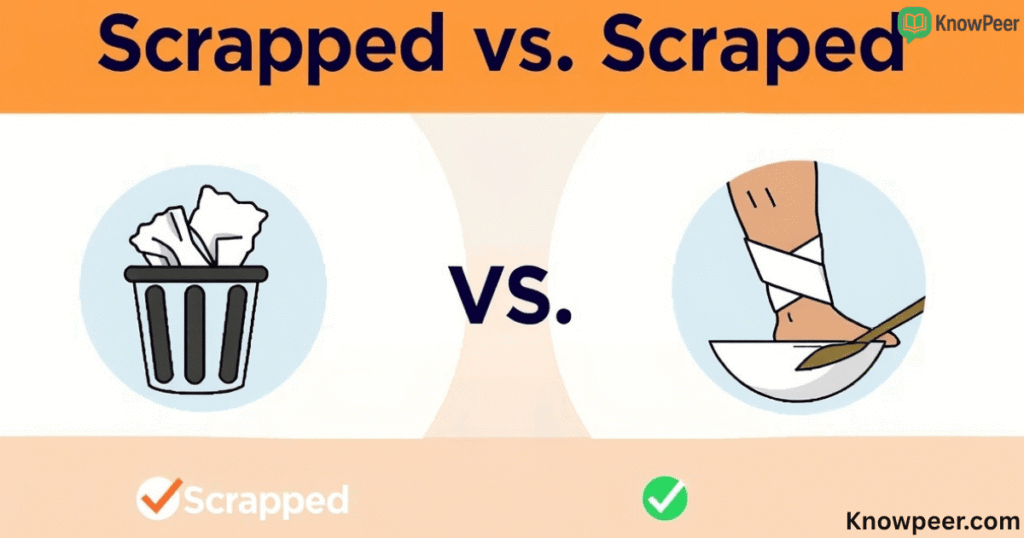
It is also worth looking at scrap vs scrape difference because it explains why their past tense forms create confusion.
The word scrap meaning refers to small leftover pieces, like scraps of paper or food. It also means to fight in informal language.
The word scrape meaning refers to dragging something across a surface or collecting. Because their base forms are already close, the past tense forms scrapped and scraped become easy to mix up. But remember, one is about discarding and the other about scratching or struggling.
Case Studies of Misuse
To see the problem in action, consider two real-world case studies of scrapped vs scraped mistakes.
In one business report, a writer wrote, “The project was scrapped last year.” What they meant was abandoned. But the word “scraped” suggested that the project was damaged or scratched, which confused readers. This is a perfect example of how the mistake changes meaning.
In another example, a student wrote, “He scrapped his knee in the fall.” The intention was to show injury, but using “scrapped” made it sound like the knee was abandoned rather than hurt. The correct form was “scraped.” These small errors may seem unimportant, but they can cause miscommunication.
Conclusion
The difference between scrapped and scraped is not just about spelling. It has two very different meanings. Scrapped definition always links to abandonment, cancellation, or rejection, while scraped definition always links to damage, effort, or narrow success. Knowing this distinction means you will avoid embarrassing mistakes in writing and speech.
Whether you are comparing scrapped vs discarded, scrapped vs abandoned, scraped vs scratched, or scraped vs grazed, the rule remains the same: one word is about stopping completely, the other is about surfaces and survival. With practice, examples, and memory tricks, you will never confuse them again.
Sources
Merriam-Webster Dictionary
Oxford English Dictionary
Cambridge Dictionary

